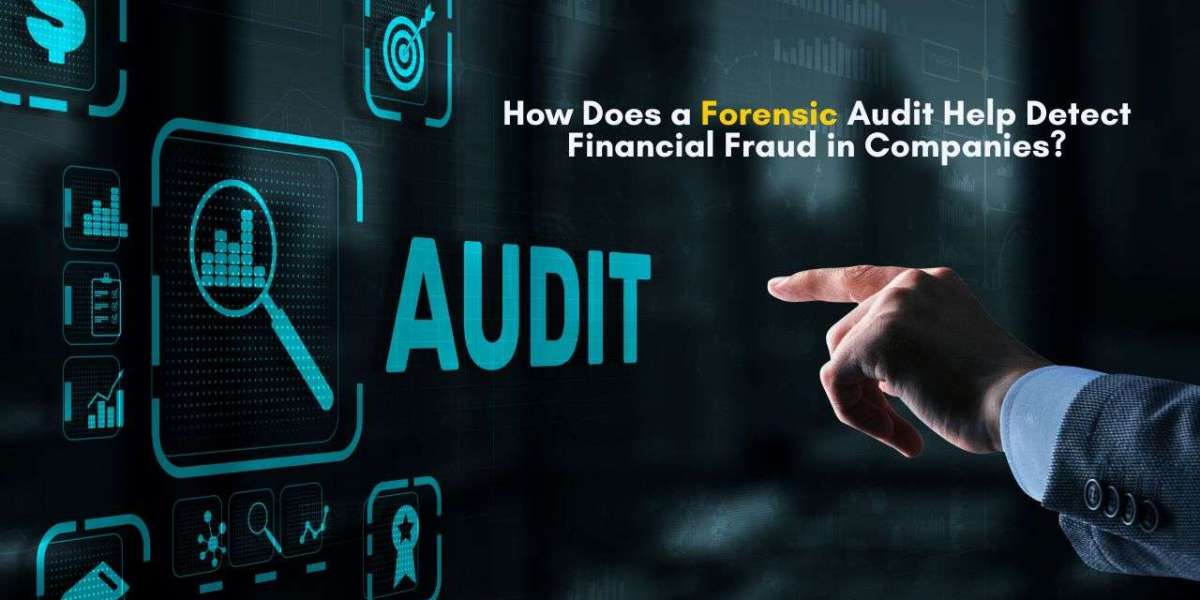Introduction
Financial fraud is a significant risk for businesses, leading to substantial financial and reputational damage. Detecting and preventing fraudulent activities requires in-depth examination and a structured approach. This is where a forensic audit plays a crucial role. It involves investigating financial records, transactions, and compliance reports to uncover any inconsistencies or fraudulent activities within an organization.
While standard audits focus on accuracy and compliance, a forensic audit goes beyond by identifying potential fraud, misconduct, or regulatory violations. Companies conducting such audits can protect their assets, maintain financial integrity, and strengthen stakeholder trust.
Understanding the Importance of Forensic Audits
A forensic audit is a specialized investigation designed to detect financial fraud, embezzlement, and other irregularities within a business. It helps organizations verify financial statements, identify discrepancies, and take corrective actions. Unlike a tax audit, which focuses on compliance with tax laws and regulations, a forensic audit aims to uncover fraud, corruption, and financial misrepresentation.
Businesses facing legal disputes, fraud allegations, or concerns about financial mismanagement can benefit from a forensic audit. The findings from this process can be used as evidence in legal proceedings, making it a valuable tool for companies dealing with financial fraud cases.
How Forensic Audits Uncover Financial Fraud
A forensic audit follows a structured approach to detect financial fraud. The investigation includes analyzing financial transactions, reviewing internal controls, and identifying unusual patterns in accounting records. Auditors assess discrepancies in financial statements, unauthorized transactions, and suspicious fund transfers to uncover fraudulent activities.
The process involves interviewing employees, scrutinizing contracts, and evaluating the overall financial health of a company. Unlike a tax audit that ensures compliance with taxation laws, a forensic audit focuses on fraud detection and financial transparency. This meticulous investigation helps businesses identify weak points in their financial systems and implement necessary safeguards.
Role of Ethical Audits in Fraud Prevention
Ethical audits play a vital role in ensuring corporate accountability and transparency. These audits assess whether a company adheres to ethical business practices, regulatory requirements, and governance standards. Conducting an ethical audit process helps organizations detect unethical behavior, financial mismanagement, and compliance risks.
The ethical audit process involves reviewing policies, analyzing transactions, and evaluating employee conduct. It ensures that businesses operate with integrity and follow ethical standards in financial reporting. When combined with forensic auditing, ethical audits provide a comprehensive approach to fraud detection and prevention.
How Insurance Audits Contribute to Financial Security
An insurance audit is another crucial aspect of financial accountability. It ensures that a company’s insurance policies align with its risk exposure and financial obligations. Auditing insurance policies helps businesses verify the accuracy of premium calculations, coverage adequacy, and claims processing.
Companies often overlook discrepancies in their insurance policies, which can lead to financial losses in the event of unforeseen circumstances. An insurance audit helps businesses assess their coverage levels and identify any fraudulent claims or misrepresentations in insurance transactions. By integrating forensic auditing and auditing insurance practices, organizations can strengthen their financial safeguards and mitigate risks effectively.
The Benefits of Conducting a Forensic Audit
A forensic audit provides multiple benefits for businesses looking to strengthen their financial controls. One of the key benefits of forensic audit is the early detection of fraud, helping companies take timely corrective measures. It also assists in regulatory compliance, ensuring that businesses meet financial reporting standards.
Another advantage is its role in enhancing investor and stakeholder confidence. Transparent financial practices and fraud prevention measures reassure investors, employees, and regulatory authorities about a company’s integrity. Additionally, forensic audits provide valuable insights into financial inefficiencies, allowing businesses to improve their operational and accounting processes.
Relationship Between Forensic Audits and Tax Audits
Although a forensic audit and a tax audit serve different purposes, they both contribute to financial transparency. A tax audit focuses on verifying tax compliance, ensuring that businesses meet their tax obligations within the tax audit limit set by the government. It identifies errors in tax filings and helps businesses rectify discrepancies before penalties are imposed.
A forensic audit, on the other hand, dives deeper into financial records to detect fraudulent activities such as money laundering, asset misappropriation, and financial statement fraud. Both audits are essential for maintaining financial discipline and preventing regulatory violations. Businesses that adhere to tax regulations and conduct forensic audits reduce the risk of economic mismanagement and legal consequences.
Ensuring financial integrity requires expertise and diligence. Corpbiz provides comprehensive forensic audit services to help businesses detect fraud, assess financial risks, and maintain compliance. Whether a company needs assistance with forensic auditing, tax audits, or auditing insurance policies, Corpbiz offers expert guidance to ensure transparency and accountability. With a team of skilled professionals, Corpbiz helps businesses implement robust financial controls and safeguard their operations from fraud.
Conclusion
Forensic audits are powerful tools for detecting financial fraud and ensuring business integrity. It helps organizations uncover fraudulent transactions, strengthen financial controls, and maintain compliance with regulatory standards. By integrating forensic audits with ethical audits, tax audits, and insurance audits, businesses can create a comprehensive fraud detection framework. Companies that prioritize financial transparency not only safeguard their assets but also build trust with investors, stakeholders, and regulatory authorities.


